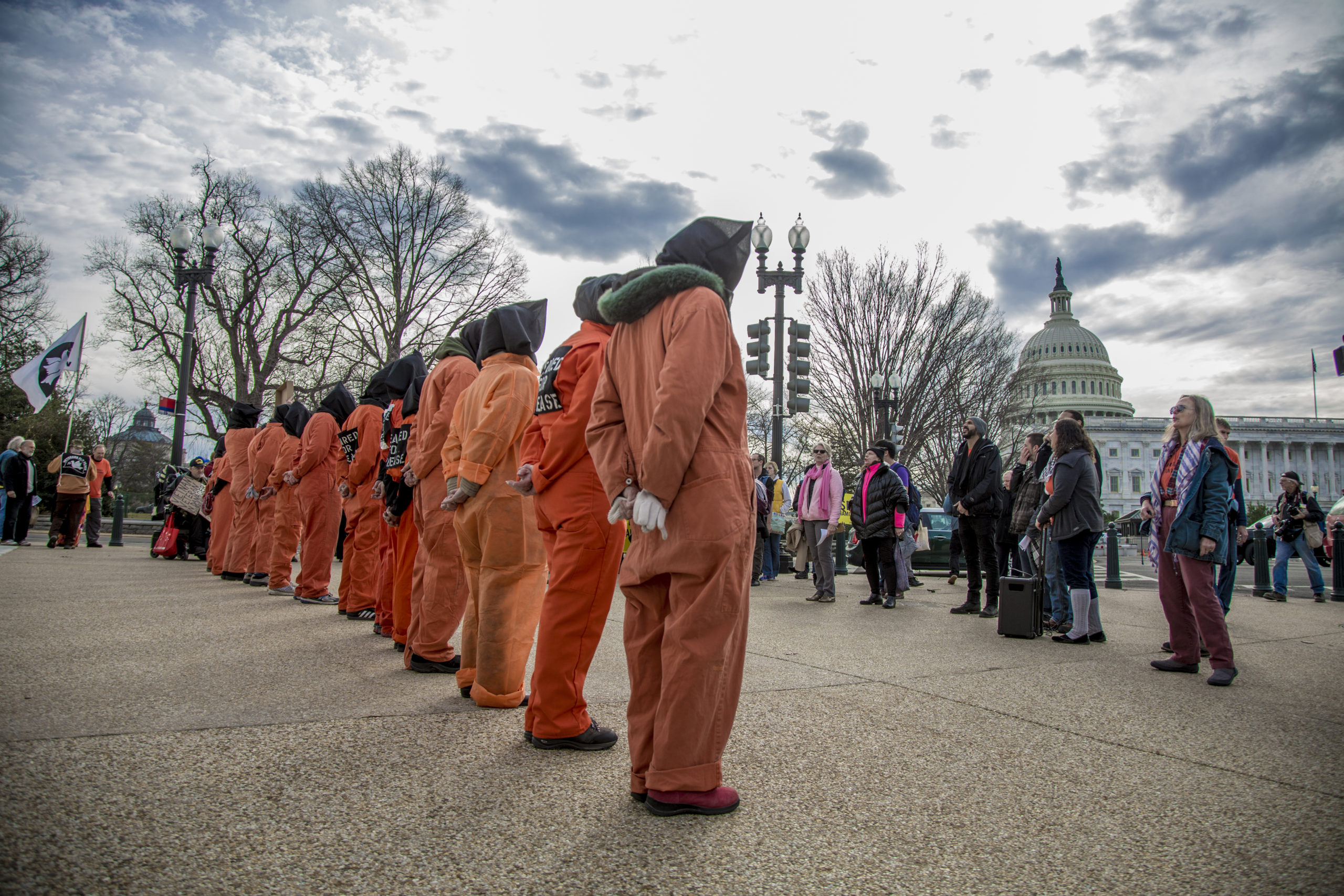
After the attacks on September 11, 2001, the United States abandoned its policy of opposing torture for the first time in history. Detainees in U.S. custody at Guantánamo Bay and “black sites” around the world faced cruel interrogation techniques, devised by American psychologists. In 2010, CJA filed a professional complaint against psychologist Dr. John Leso for his role in crafting and implementing torture techniques on Guantánamo prisoners.
“Do no harm” is the medical profession’s central tenet. Yet, as a 2008 Senate inquiry revealed, psychologists played a prominent role in carrying out a program of torture used on prisoners held in U.S. detention facilities in Guantánamo, Iraq, Afghanistan, and in CIA-operated “black sites” around the world.
Major John Francis Leso, a clinical psychologist with no training or experience in interrogations, was one of the first mental health professionals tasked with supporting Guantánamo’s interrogation operations.
While at the infamous detention camp, Dr. Leso co-authored an interrogation policy memo that incorporated illegal interrogation techniques adapted from methods used by the Chinese and North Korean governments against U.S. prisoners of war. The techniques included round-the-clock isolation, stress positions, temperature extremes, sleep deprivation, daily 20-hour interrogations, removal of clothing, and threats designed to convince the detainee that he might experience a painful or fatal outcome. Many of these techniques were used on suspected al-Qaeda member Mohammed al Qahtani under Dr. Leso’s direct supervision.
In 2010, CJA filed a professional complaint against Dr. Leso before the New York Office of Professional Discipline, the New York state agency that governs licenses of psychologists. The complaint was brought on behalf of Dr. Steven Reisner, a long-time critic of peers who have assisted in interrogations. It was dismissed without an investigation.
In 2011, CJA, along with the NYCLU, petitioned the New York State Supreme Court to review the allegations in our complaint. It was the first time a U.S. court had considered whether a psychologist’s participation in abusive interrogations could violate professional standards. The court dismissed the complaint on a narrow, procedural ground.
CJA also called on the American Psychological Association (APA) to expel Dr. Leso from its association. Unlike the American Medical Association and the American Psychiatric Association, the APA never prohibited its members from being involved in interrogations.
In 2015, an independent report, known as the “Hoffman Report,” concluded that the APA leadership actively colluded with the government’s torture programs. As a result, four top APA officials resigned and the APA adopted a new policy barring psychologists from participating in national security interrogations.
In October 2017, Dr. Reisner informed CJA that an ethics complaint had been filed against him with the APA. The complaint alleges that in criticizing the work of operational psychologists (i.e., for participation in torture), Dr. Reisner went beyond his area of competence as a professional psychologist. The complaint was not dismissed out of hand, and Dr. Reisner was required to respond. Further, he was advised that to reveal the complaint against him publicly could itself be considered an ethics violation. CJA and the New York Civil Liberties (NYCLU) assisted Dr. Reisner in drafting his response, which he filed on November 27, 2017. The Committee dismissed the complaint against him on December 29, 2017.
To date, none of the psychologists who tortured have been held to account for their actions.
